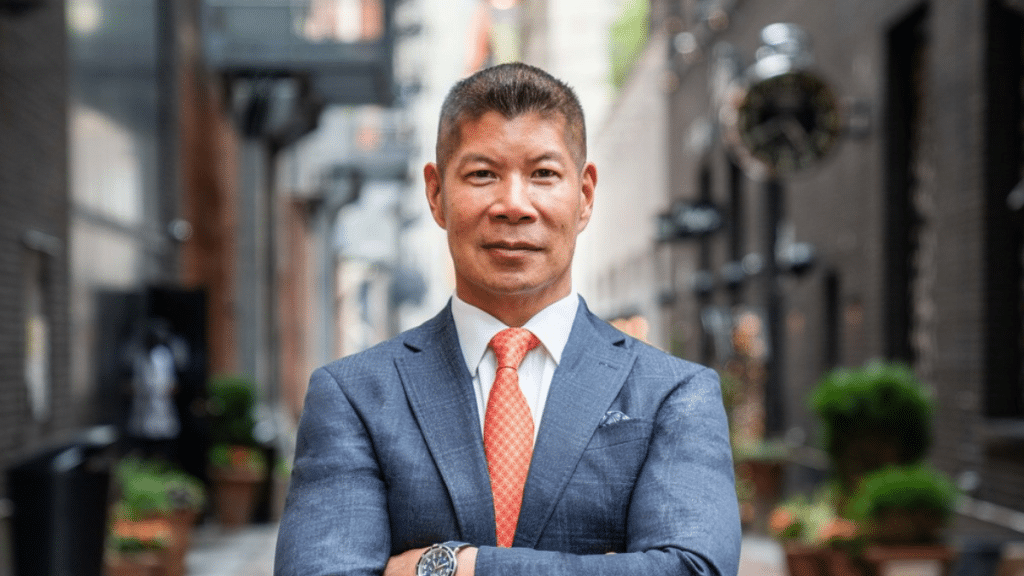Eric Poe stands out as a champion of justice and reform in a field that is frequently shrouded in intricate regulations and unseen biases. A seasoned entrepreneur, attorney, and advocate, Poe has dedicated much of his career to addressing inequities within the auto insurance sector. His goal is to guarantee that all customers receive equitable treatment when it comes to insurance rates and accessibility, irrespective of their socioeconomic background or ZIP code.
The Problem With The Status Quo
By design, car insurance is meant to shield drivers from harm and lessen monetary losses in the case of an accident. However, the pricing models many companies use rely on non-driving-related factors, such as credit scores, marital status, and even educational background. Eric Poe has long criticized these practices, arguing that they disproportionately harm low-income individuals and communities of color.
In New Jersey—a state with one of the highest auto insurance rates in the country—these issues are particularly pronounced. “People who have never had an accident or a ticket are paying more simply because of where they live or their credit history,” Poe has explained in multiple interviews and op-eds. “That’s not risk-based pricing. That’s discrimination.”
Challenging The System
Poe has not merely voiced concern; he has taken action. As the CEO of CURE auto insurance, Poe helped build a company based on the principle of insuring drivers based on their driving records—not their credit scores or socioeconomic backgrounds. Under his leadership, CURE became a rare example of an insurer that prioritized fairness over profit maximization.
By eliminating factors such as education, occupation, and credit score from its underwriting model, CURE provided an alternative to the industry norm. Poe’s vision gained traction among consumer advocacy groups, many of whom lauded his commitment to transparency and equity. His approach challenges traditional business models, but for Poe, the ethical imperative outweighs short-term gains.
A Legal Mind With A Social Mission
With a background in law, Poe brings a unique perspective to the table. He understands how policy and regulation can perpetuate or dismantle systemic inequality. He’s used this knowledge not just to run a fairer insurance company but to influence public policy. He has testified before legislative bodies, written extensively on the subject, and actively participates in public dialogues on insurance reform.
Poe’s legal expertise allows him to dissect complicated regulatory frameworks and expose how certain policies negatively impact vulnerable populations. His arguments are not just emotionally compelling but legally sound—making him a credible and effective advocate for reform.
Beyond Auto Insurance
While most known for his work in auto insurance, Poe’s vision extends far beyond it. He has frequently pointed out that discriminatory pricing practices are just one symptom of a much broader issue: systemic inequality that shows up in many sectors, from healthcare to housing. For Poe, the fight for equity in insurance is a microcosm of a larger battle for social justice.
His larger point strikes a chord at a time when customers are becoming more conscious of how corporate actions affect society. Poe advocates for corporate accountability and transparency, encouraging companies to reevaluate how their models affect disadvantaged communities.
A Voice In Media And Advocacy
Eric Poe’s influence has reached beyond boardrooms and courtrooms. As a contributor to NJ Spotlight News and other media outlets, he has penned articles and opinion pieces that educate the public on the hidden mechanics of the insurance industry. His writing is accessible yet insightful, breaking down complex topics in ways that everyday readers can understand.
Poe also makes frequent media appearances to discuss consumer rights and regulatory reform. His ability to engage with both policy experts and the general public has made him an important voice in the movement for economic justice.
Resistance And The Road Ahead
Of course, not everyone in the industry agrees with Poe’s ideas. Critics argue that using factors like credit score helps insurers more accurately assess risk, leading to better pricing for most consumers. But Poe counters that this approach inherently penalizes people for circumstances often outside their control. “You shouldn’t pay more for insurance because you didn’t go to college or because your job doesn’t come with a corner office,” he has said.
Despite resistance, Poe remains steadfast. His work continues to inspire a new generation of advocates and entrepreneurs who believe that business can be both profitable and principled. The rise of ethical consumerism, coupled with growing attention to systemic inequality, suggests that the tides may be turning.
Final Thoughts
Eric Poe’s efforts to promote equity in auto insurance represent more than just a business strategy—they are a call to conscience. By focusing on fairness, transparency, and inclusion, he challenges the norms of an entrenched industry and sets a new standard for what responsible leadership can look like. In a world where economic inequality is increasingly under scrutiny, Poe’s work reminds us that real change often starts with asking hard questions and daring to reimagine the rules. Whether through his legal advocacy, business innovation, or public commentary, Eric S. Poe continues to be a powerful force for equity—not just in auto insurance but in the broader fight for a fairer society.
